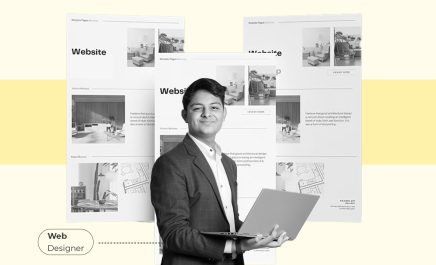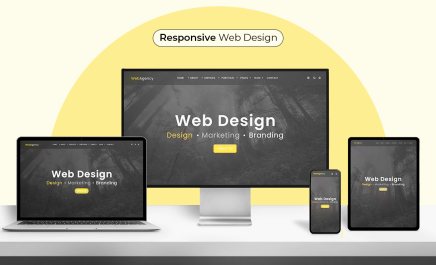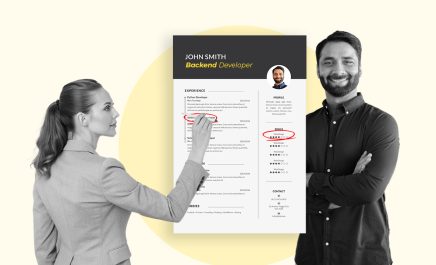Why Hiring a Professional Web Designer is Key to Website Success?
- Chetan Chaand
- December 18, 2024
- 5 Minute Read
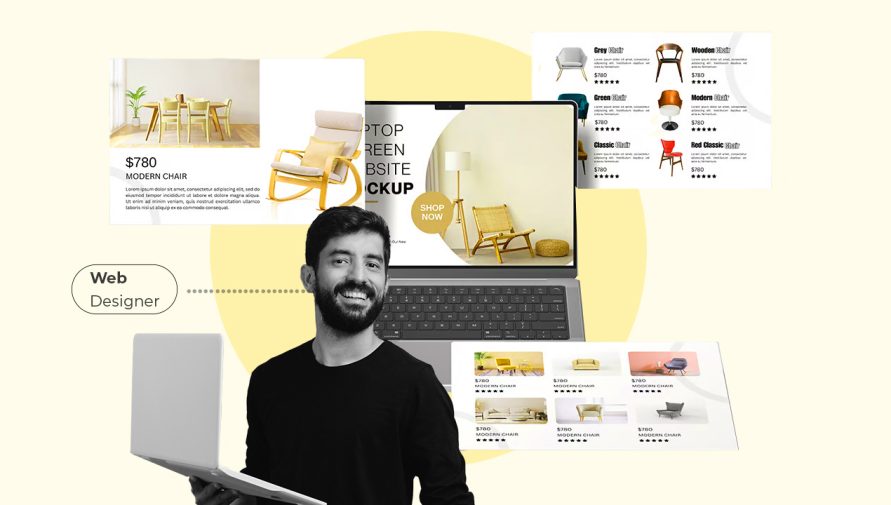
How often do you judge a company based on its website? Studies show that 75% of users evaluate a company’s credibility based on its website design.
A website acts as your online storefront, establishing the initial impression that can either build or damage a customer’s trust.
The role of a website designer is to go well beyond creating attractive pages. Website designers create a website that portrays your brand identity, provides smooth user experiences, and aligns with business goals.
By focusing on professional web design, companies can boost engagement, turn visitors into loyal customers, and achieve lasting success in today’s digital-centric landscape.
The Impact of Professional Web Design on Business Success
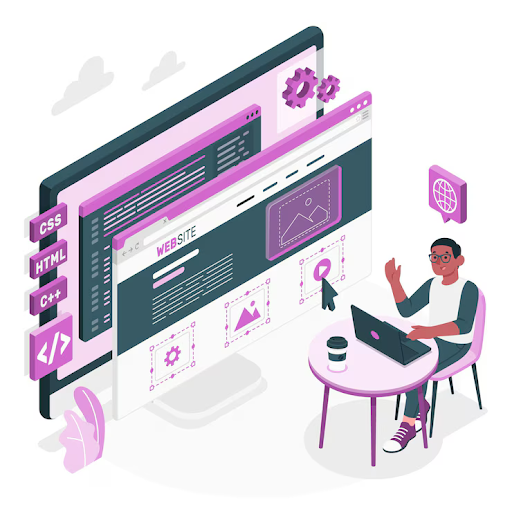
Professional web design is crucial for enhancing user engagement, building brand trust, and achieving business objectives.
Here’s how:
1. First Impressions and Brand Perception
A website often serves as customers’ first encounter with your brand. A skilled web designer ensures that the design attracts attention and establishes trust immediately. Uniform branding, attractive visuals, and user-friendly designs reflect professionalism and reliability.
Research indicates that 94% of first impressions are tied to design, highlighting the importance of professional web design.
An ineffective website design can discourage prospective customers, whereas a well-crafted site leaves a lasting, favourable impression that establishes the tone for future engagement.
2. User Experience (UX) and Customer Retention
The role of a website designer involves enhancing the user experience to ensure the highest level of satisfaction.
User-friendly navigation, quick loading times, and adaptable layouts ensure smooth experiences across various devices. An effective user experience lowers bounce rates and maintains visitor engagement.
Studies indicate that 88% of users do not revisit a website following a negative experience. A well-crafted design emphasizes functionality and accessibility, improving customer loyalty and promoting repeat visits.
3. Search Engine Optimization (SEO) Benefits
A professional web designer seamlessly incorporates best SEO practices into the design workflow.
Correct utilization of headings, optimized visuals, and mobile-responsive designs enhance search engine rankings. Search engines prioritize websites with optimized coding and high usability, enhancing their visibility in search results.
By integrating these elements, a web designer facilitates organic traffic, showcasing the advantages of professional web design for achieving online success. Enhanced SEO boosts visibility and results in increased conversion rates, supporting sustainable business growth.
Key Benefits of Hiring a Professional Web Designer
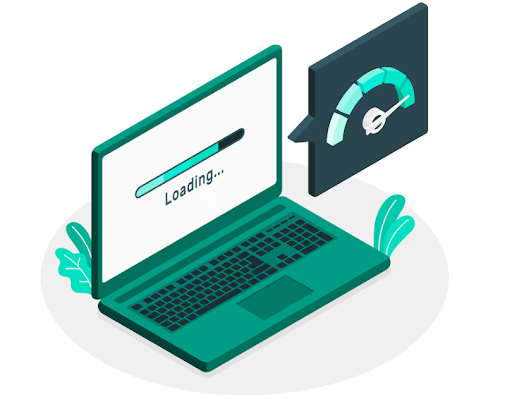
Hiring a professional web designer ensures your website looks appealing and functions seamlessly to achieve business goals.
1. Customized and Unique Design
A professional web designer creates tailored designs that resonate with your brand identity and meet your specific business needs. Unlike generic templates, customized designs communicate uniqueness, building a memorable presence for your business.
By understanding your target audience, a designer ensures your website aligns with user expectations, delivering a cohesive experience. This personalization reinforces brand trust and sets you apart in competitive markets.
2. Responsive and Mobile-Friendly Layouts
As mobile users account for over half of worldwide web traffic, responsive design is crucial. A professional web designer ensures that your website operates smoothly on various devices, improving accessibility.
Responsive designs enhance user experience, decrease bounce rates, and boost rankings in search engine results. This flexibility ensures that your company stays accessible and diverse to a diverse audience.
3. Faster Loading Speeds
Website speed dramatically affects user experience and conversion rates. Websites that load slowly can lose as much as 53% of their users if the loading time exceeds 3 seconds.
A professional web designer enhances loading times by utilising efficient coding, compressing images, and integrating a content delivery network (CDN).
4. Enhanced Security Measures
A vital responsibility of a website designer is to integrate security measures to safeguard user information and prevent cyber risks.
Features such as SSL certificates, secure payment gateways, and frequent updates ensure your site stays protected. Strong security fosters customer confidence and prevents reputational harm resulting from breaches.
5. Integration of Advanced Features and Functionalities
Modern websites require advanced features to stay competitive. Professional web designers incorporate functionalities like chatbots, analytics, and custom plugins, enhancing user engagement.
These tools streamline operations, meet evolving user expectations, and improve overall website performance. By integrating these features, a designer ensures your site remains future-ready and business-focused.
Cost-Benefit Analysis: Professional Design vs. DIY Approaches
When choosing between a professional web designer and DIY approaches, it is crucial to recognize the lasting benefits of expert design. Here’s what to consider when you hire a professional website designer:
1. Initial Investment vs. Long-Term Gains
Hiring a professional web designer might appear expensive at first, but it offers substantial benefits in the long run.
Professionally designed websites are enhanced for performance, user interaction, and SEO, leading to increased traffic and conversions. A well-designed website also lowers maintenance expenses, avoiding the need for regular fixes.
Companies that hire website designers gain a competitive advantage. Their platforms provide enhanced usability and features, ensuring sustainable ROI over time.
2. Time Efficiency and Opportunity Costs
While DIY website builders may seem economical, they require time and energy that could be better used to expand your business.
Experts optimize the design workflow, using their knowledge to achieve superior outcomes more swiftly. This effectiveness reduces delays and ensures a quick launch without sacrificing quality.
By avoiding DIY pitfalls, businesses can focus on strategic priorities, demonstrating the benefits of professional web design in maximizing resources effectively.
How to Choose the Right Professional Web Designer?
Choosing and hiring the right professional remote web designer involves evaluating creativity, technical expertise, and their ability to align with your goals. Here’s how to select the best
Step 1: Evaluate Portfolios and Past Work
Examine a designer’s portfolio to gauge their creativity, adaptability, and alignment with your industry. Look for projects that align with your industry and demonstrate their capacity to create designs that connect with your audience.
A compelling portfolio showcases unique designs and successful results, illustrating the role of website designer in building impactful digital experiences.
Step 2: Assess Technical Skills and Expertise
Verify that the designer is skilled in modern tools and frameworks such as Adobe XD, Figma, or WordPress. Evaluate their understanding of responsive design, SEO concepts, and secure coding techniques.
A professional web designer merges technical skills with creativity to produce effective, functional websites.
Step 3: Understand the Designer’s Process and Communication Style
Explore the designer’s project management strategy, including timelines, feedback cycles, and communication practices. Clarity and alignment with your business objectives are essential. A designer who grasps your vision ensures that the web design leads to quantifiable outcomes.
Conclusion
Professional web design is more than aesthetics; it directly impacts brand perception, user experience, and business outcomes. The role of a website designer ensures that your website is optimized, secure, and aligned with your business objectives.
Investing in a professional web designer builds credibility, drives engagement, and fosters customer loyalty, establishing your brand as a market leader.
Businesses should prioritize hiring a professional web designer to achieve long-term growth and sustained digital success. A well-designed website offers unmatched benefits, from better conversions to enhanced SEO performance.
Don’t just build a website; create a strategic tool that drives your business forward!
Frequently Asked Questions
What does a professional web designer do?
A professional web designer creates customized, visually appealing, and functional websites that align with your brand identity, business goals, and target audience needs.
How long does it take to design a professional website?
The timeline depends on the requirements, but a standard website generally takes 4 to 8 weeks. More advanced features may require additional time.
Can a professional web designer enhance my site’s SEO?
Yes, they implement SEO-friendly elements, such as optimized layouts, fast loading speeds, mobile responsiveness, and metadata integration, to boost search rankings effectively.
What should I look for in a professional web designer?
Check their portfolio, technical expertise, communication skills, client testimonials, and ability to deliver creative, functional, and scalable designs tailored to your needs.

Thank you for submitting the details!
We will keep your information safe. Feel free to contact us with any questions at hello@uplers.com
Please check your email for next steps shared by Robert.
